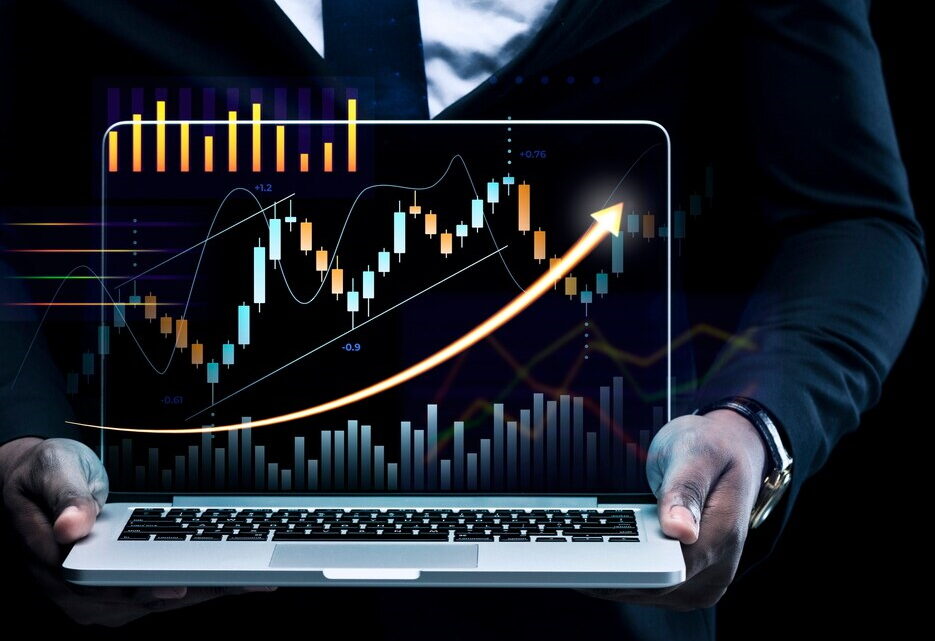The foreign exchange market, by its very nature, is inherently volatile. This volatility, characterized by significant fluctuations in currency values, can be both a source of risk and opportunity for forex traders. While it can lead to substantial losses for those unprepared, it can also present lucrative opportunities for those who can anticipate and capitalize on market movements. This introduction explores the impact of market volatility on forex trading, analyzing its causes, consequences, and strategies for navigating this dynamic environment.
Definition of Market Volatility
Market volatility is a measure of the degree of variation in the price of a financial instrument within a certain period. It reflects the frequency and size of price fluctuations, indicating the overall stability or instability of the market. In simpler terms, when the prices of currencies in the Forex market experience significant and frequent changes, it is considered a volatile market.
Understanding market volatility is essential for traders as it helps gauge the potential risks and rewards associated with different trading strategies. Volatility is often expressed as a percentage and can be calculated using historical price data. It is a key concept in financial markets, influencing decision-making and risk management for investors engaging in various trading activities. Traders use volatility indicators to assess the market’s current state and make informed decisions based on the expected level of price movement. In essence, market volatility sets the stage for the dynamic nature of Forex trading, shaping the landscape in which traders operate.
Factors Influencing Market Volatility
Market volatility is influenced by a multitude of factors, each playing a significant role in shaping the trading landscape. Understanding these factors is crucial for traders seeking to navigate the complexities of the Forex market. Here are key elements contributing to market volatility:
Economic Indicators
- Gross Domestic Product (GDP): Changes in a country’s economic output can lead to fluctuations in currency values.
- Employment Figures: Unemployment rates and job creation impact market sentiment, influencing currency prices.
- Inflation Rates: The rate at which prices rise or fall affects currency purchasing power, triggering market movements.
Geopolitical Events
Global events exert a powerful influence on market sentiment and, subsequently, volatility.
- Political Unrest: Political instability, protests, or changes in government can lead to uncertainty, prompting rapid market responses.
- Trade Disputes: Tariffs and trade tensions between nations can cause fluctuations in currency values.
- Natural Disasters: Environmental events impact economic stability and may lead to sudden market shifts.
Market Sentiment
Investor perception and sentiment are integral drivers of market volatility.
- Positive Sentiment: Optimism about economic conditions can lead to increased trading activities and higher volatility.
- Negative Sentiment: Pessimism, fear, or uncertainty can result in risk aversion, reducing market liquidity and increasing volatility.
Understanding the intricate interplay of these factors empowers traders to anticipate and respond effectively to market volatility, making informed decisions in the ever-changing Forex environment.
How Market Volatility Impacts Forex Trading
Market volatility is a double-edged sword in the world of Forex trading. It can present both opportunities and challenges, significantly influencing the outcomes for traders.
Increased Opportunities
- Price Swings: Higher volatility often leads to more substantial price swings, creating opportunities for traders to capitalize on short-term market movements.
- Increased Trading Volume: Volatile markets tend to attract higher trading volumes, providing traders with ample liquidity and the ability to enter and exit positions more easily.
- Profit Potential: For skilled and well-prepared traders, volatility can translate into increased profit potential as they can take advantage of rapid price fluctuations.
Higher Risks
- Unpredictability: Volatility introduces a level of unpredictability, making it challenging to foresee market movements accurately.
- Margin Calls: Sharp price movements can trigger margin calls, potentially leading to forced liquidation of positions.
- Emotional Stress: Dealing with increased market volatility can be emotionally taxing for traders, leading to impulsive decision-making.
Effect on Trading Strategies
- Short-Term Strategies: Volatile markets often favor short-term trading strategies, such as day trading or scalping, where traders aim to capitalize on quick price changes.
- Long-Term Strategies: For long-term investors, market volatility may require a more patient and strategic approach, as short-term fluctuations may not align with broader market trends.
- Adaptability: Traders need to adapt their strategies based on the prevailing market conditions, adjusting risk management and trade execution strategies accordingly.
Understanding these impacts is crucial for traders to navigate the Forex market effectively, balancing the potential rewards of increased opportunities with the inherent risks associated with higher volatility.
Strategies for Trading in Volatile Markets
| Strategy Type | Description | Key Considerations |
| Risk Management | Involves setting clear risk parameters for trades, including stop-loss orders and position sizing. | Establishing risk-reward ratios. |
| Hedging | Utilizing financial instruments to offset potential losses in volatile markets. | Identifying correlated assets for effective hedging. |
| Technical Analysis | Analyzing price charts and using indicators to make informed trading decisions. | Identifying support and resistance levels. |
| Fundamental Analysis | Evaluating economic and financial data to assess currency value. | Staying informed about economic events. |
Trading in volatile markets requires a well-thought-out approach, combining risk management, strategic thinking, and adaptability. Here are key strategies employed by traders:
- Risk Management: Effective risk management is paramount in volatile markets. Traders must define risk parameters, set stop-loss orders, and manage position sizes to protect capital. Establishing clear risk-reward ratios ensures that potential losses are controlled, allowing for more sustainable trading over the long term.
- Hedging: Hedging involves using financial instruments to offset potential losses in the event of adverse market movements. Traders identify correlated assets and use hedging strategies to mitigate risks. This approach provides a level of insurance against unexpected market fluctuations.
- Technical Analysis: Technical analysis is a crucial tool in navigating volatile markets. Traders analyze price charts, identify trends, and use technical indicators to make informed decisions. Recognizing support and resistance levels helps traders anticipate potential price reversals or breakouts, guiding their entry and exit points.
- Fundamental Analysis: Understanding the underlying economic factors that drive currency values is essential in volatile markets. Traders employing fundamental analysis stay informed about economic events, central bank decisions, and geopolitical developments. This knowledge helps them anticipate market movements and make strategic trading decisions.
By combining these strategies, traders can enhance their ability to navigate the uncertainties of volatile markets, adapting to changing conditions and optimizing their chances for success.
Psychological Aspects of Trading in Volatile Markets
Successfully navigating volatile markets requires not just strategic acumen but also a deep understanding of the psychological aspects that come into play. Traders must grapple with the following psychological challenges:
Managing Emotions
The intensity of market volatility can evoke strong emotions, including fear, greed, and anxiety. Traders need to develop emotional resilience, ensuring that decisions are based on rational analysis rather than impulsive reactions. Emotional discipline is a key factor in maintaining a steady and focused trading mindset.
Decision-Making Under Stress
Volatile markets often induce stress, creating an environment where quick and impactful decisions are necessary. Traders must hone their ability to make sound judgments under pressure, considering both short-term and long-term implications. Developing a calm and collected approach to decision-making is crucial for sustained success.
Patience and Discipline
In the face of rapid market movements, maintaining patience and discipline is challenging yet essential. Traders need to resist the temptation to deviate from their established strategies, recognizing that impulsive decisions can lead to significant losses. Cultivating a disciplined approach ensures consistency in trading behavior and enhances the ability to weather market volatility.

